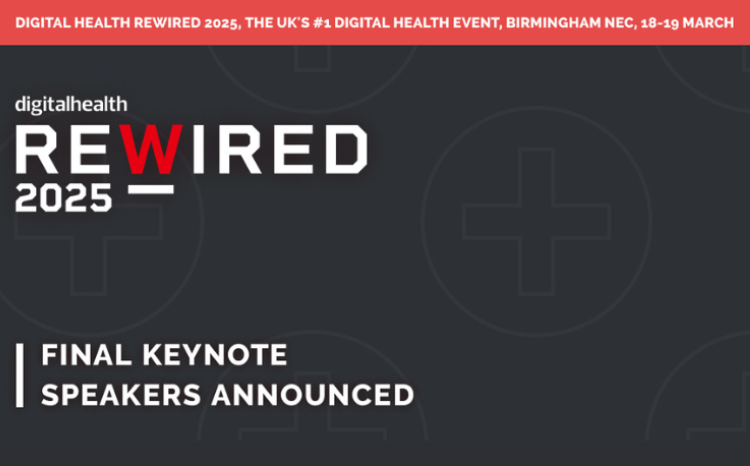Digital Health Interview: Sonia Patel’s first 120 days as NHSX CIO
- 15 October 2020

Sonia Patel talks to Digital Health’s editor-in-chief, Jon Hoeksma, about her first 120 days as NHSX’s CIO, joining in the middle of the pandemic, early lessons and hopes for the future.
It’s been just over 120 days since Sonia Patel took up the role of CIO at NHSX, joining in the middle of a pandemic that has placed a spotlight on digital and seen huge strides made by local organisations.
Speaking over Teams, Patel says she has really enjoyed the new national role and the crisis has meant she joined at a fascinating inflection point for digital. The new role has also meant she has switched from hard core front-line delivery to shaping national strategic delivery.
“It is a significant shift of mindset from local to national,” she says.
“It’s really interesting to learn how things operate at a national scale. In some ways – I couldn’t have started at a better time. Covid has really shone a light on digital and the real opportunity it provides to transform health and care.”
She adds: “I am really humbled about having this role and thankful to those that have put their trust in me to lead this agenda. It’s such an incredible role and it’s incredibly important that we get this right.”
Crucially, she says, the ongoing crisis has broken digital out of the silo it was in.
“We are now keen to maintain that pace, and it’s exciting that there is now an appetite to go further and make digital part of every conversation on service improvement and delivery,” Patel says.
Diversity and inclusion champion
On the topic of diversity, Patel said the Black Lives Matter movement highlighted serious structural challenges across the health service, adding that NHSX will soon move forward with plans to address the need for a “diverse and inclusive workforce where talent comes first”.
“I hope to bring authenticity, which is a really important part of my leadership”, she adds.
“My approach is slightly different to other approaches I observe. My approach is one that likes to truly be inclusive but can make hard decisions when necessary.”
Key experience
In addition, Patel’s past experience as a local NHS CIO has helped shape her outlook.
Working as joint CIO at London North West Healthcare NHS Trust and The Hillingdon Hospitals Foundation Trust, gave Patel immediate first-hand knowledge of the pressures local NHS IT leaders were under during Covid-19.
One piece of work Patel said she was particularly proud of was a crowdsourcing initiative for a virtual visits app to help relatives keep in touch with patients.
“It began one evening with a call through Twitter for the community to come and help us develop an app, and within 48 hours we had a test app which is now being widely used, it really goes to show what we can achieve when we collaborate,” she says.
Learning on the job
Asked what she has learned in her first 120 days, Patel laughs, saying she has learnt that the role is “incredibly complex” but it has taught her about the care sector which is says she is “truly excited about”.
“I’ve also learnt that policy makers have been really receptive to how digital technology and data supports future plans,” she adds.
“There’s a real open door with national partners to work collaboratively to shape and support the digitisation of the NHS and care this includes NHS Providers, HEE [Health Education England] and also the CQC.
“We are now working through our plans for digital transformation as part of the spending review.”
Another part of her new national role is maintaining close links to regional and local leads.
“Having been a front-line NHS CIO, I recognise that we need to do better nationally on coordination and we now have plans in place to improve that,” she says.
Work to be done
Turning to early achievements, Patel says she has focused on trying to work through the smaller things that will make a big difference further down the line.
“In my first 120 days I’m really pleased that we will have the Electronic Referral Service API available for Spring 2021,” she says.
“I’m also very pleased we will be launching the blueprints for digital advanced hospitals for the 40 new hospital builds.”
Within NHSX, Patel is leading the ambitious and high-profile piece of work to develop a ‘What Good Looks Like’ framework that will “help local systems accelerate their digital transformation plans”.
“It’s [the framework] an evolution of our digital maturity assessments, that really considers the rounder needs of transformation including our people, practice and technology,” Patel says.
She continues: “It will consider different dimensions from digital leadership to sustainability and resources, and include questions like clinical capability and experience, as well as what is the approach to innovation and partnerships in local systems to support digital transformation.”
To help inform what these different strands will look like, Patel’s team is starting to pull together expert groups – working with both digital and with non-digital leaders.
Patel stresses this new benchmark will not be used solely to decide who gets access to future resources, in the way digital maturity assessment scores came to be used to inform winners and losers in the Global Digital Exemplar programme
“First and foremost, this is an enablement tool,” says Patel.
“We think it will help us generate insights as to where systems are along the spectrum of digital, connect and transform. And help us understand how we customise support to local systems and encourage a vibrant community of sharing. We know there is some really good stuff happening across England, we should be proud, share and learn.”
Working together
Turning to how national bodies work with one another, she says that there is a need for better joining up.
“Having been an NHS CIO I recognise that we need to do better nationally on co-ordination and we now have plans in place to improve that co-ordination,” Patel says.
She points to the review currently being undertaken by the new NHS Digital chair, Laura Wade-Gery on behalf of Secretary of State for Health and Social Care, examining how to accelerate NHS digitisation and better join-up efforts between NHS Digital, NHSX, NHS England and NHS Improvement. The Wade-Gery review is expected to report to the Secretary of State for Health and Social Care in due course.
Asked whether she sees her role as head of the emerging profession of health CIOs, Patel says not yet.
“It is my ambition to be head of profession, but the move to professionalism is still a work in progress that we are defining collaboratively with the professional bodies,” she says.
Looking ahead, Patel stresses that she wants to continue to work collaboratively with colleagues from health and care.
“I’d like to continue to connect to colleagues through existing forums across the country, like the regional directors of digital,” she says.
“We’re also doing a piece of work with Health Education England on Connected Communities on how we can build on the power of communities out there, address unmet needs and continue to share experiences and good practice.”




